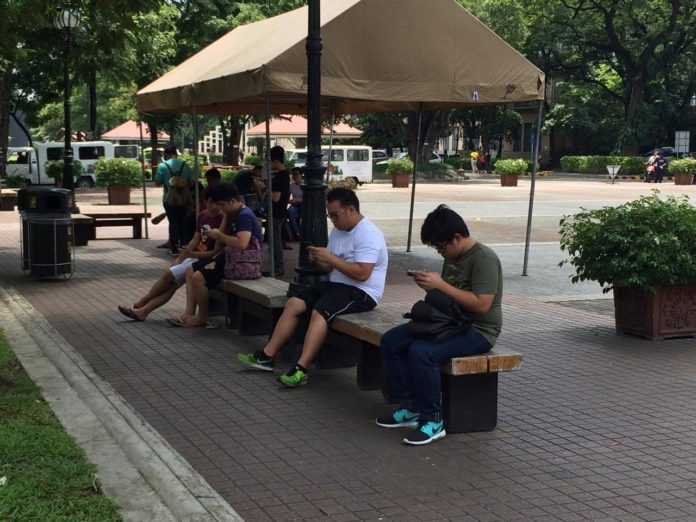WHAT STARTED as video game designer Satoshi Tajiri’s fascination for insect-collecting in 1995 is now the second-most popular video game franchise worldwide, next to Nintendo’s Mario franchise.
With 122 games under its slate, Pokémon is the hottest mobile game today.
Entire evenings have been spent tucked under sheets with players “becoming the very best” in their cause to train their Pokémon, or Pocket Monsters. However, when “Pokémon GO” was launched last month, it seems that Pokémon was still ready to break trends.
Pokémon GO is built on Niantic Labs’ “real world gaming platform” which makes use of real locations to encourage players to explore the real world in search for Pokémon.
The game allows players to find and catch more than a hundred species of Pokémon as they explore their surroundings.
Unfortunately, the game’s popularity has earned criticism that Pokémon, like any other video game franchise, can cause addiction and even offer new means to promote inaction and laziness. After all, who would bother to go outside if they can save the world from their mobile phones?
Breaking trends
Concerns about video game addiction have been the subject of several studies for years.
Daria Kruss and Mark Griffiths from Nottingham Trent University suggest that excessive online gaming may lead to symptoms commonly exhibited by substance abusers such as salience, mood modification, craving and tolerance.
However, the arrival of Pokémon GO in iOS and Android devices seems to have broken this trend. A lot of Pokémon GO players actually claim to have been more motivated to go outside and interact with others. Some players even claim that the game helped them deal with anxiety and depression.
“[Pokémon GO] is entertaining because it is a creative way to be active. I have been a fan of Pokémon since the original Gameboy games,” Michael Villarica, an American citizen based in Long Island, told the Varsitarian in an online interview. “I am playing the games again and watching the original show [because of Pokémon GO.]”
He added that the game is promoting the importance of staying fit and active, having experienced the effect firsthand. “For the past few days, I’ll randomly go skating to try and find some Pokémon.”
Unfortunately, reports have also surfaced of acts of trespassing, the sudden rise of mugging and cases of accidents involving the game. Reports such as people falling off cliffs, being involved in shootouts and even causing a stampede has been alluded to what seems to be an ‘addiction’ to Pokémon GO.
This is despite the fact that the game is still under limited release and much of the cases have surfaced from the United States, Australia, New Zealand, and in some parts of Europe and Asia.
However, despite impressions associating Pokémon GO and other video games to “addiction,” studies believe the terminology is simply an overreaction.
Bandwagon effect
“Bandwagoning” is a phenomenon in which people do something primarily because other people are doing it.
Economist Harvey Leibenstein states in his study that “bandwagoning” represents the desire of people to purchase a commodity in order to get into the “swim of things,” to conform with the people they wish to be associated with, or to be fashionable.
It is possible that people play Pokémon GO because of the pressure to conform to society’s trends as studies also suggest that the degree of immersive experience is closely related to how engaging people find videogames.
In a study conducted by gaming researcher Richard Wood from Nottingham Trent University, there is currently no such clinical criteria for something to be considered as video game “addiction” that has been accepted by any organization responsible for defining mental disorders.
Joe Ahn and George Randall from Clemson University in the United States also observed in a study that many people use video games not because they are “addicted,” but because it is the only comfortable social medium for them. This might mean “addicted” gamers are simply following trends, or even simply coping up with anxiety issues.
Pamela Rutledge, director of California’s Media Psychology Research Center, said in an article that Pokémon GO is appealing because it blends game experience with physical activity and real socialization.
“Pokémon GO allows you to bring fantasy into your own life but within your own control,” Rutledge said.
“I did not feel addicted, but I could see why someone could be. It is gratifying to catch Pokémon. The goal of catching them all is also very appealing,” Villarica, who echoed Rutledge, said.
Sigrid Cruz, a Thomasian who spent her vacation in the United States and had the chance to play the game, said that people in the United States have pulled over in highways just to catch Pokémon.
“I felt worried because it was pure chaos. There are also more accidents, because people become frustrated or angry due to the traffic jams.” Cruz said. “People walk around cities and neighborhoods even until early morning or late at night in some pretty somber places and it’s just not safe.”
Regardless, Pokémon GO may have its merits, especially in treating issues related to anxiety and depression.
Psychologist John Grohol told PsychCentral that PokemonGO and its encouragement to get people moving is beneficial to mental health especially because walking has been a proven method of dealing with anxiety and depression.
“One of the features of this game is allowing you to actually challenge one of the major complaints about gaming: that it’s sedentary and isolating,” Rutledge said.













